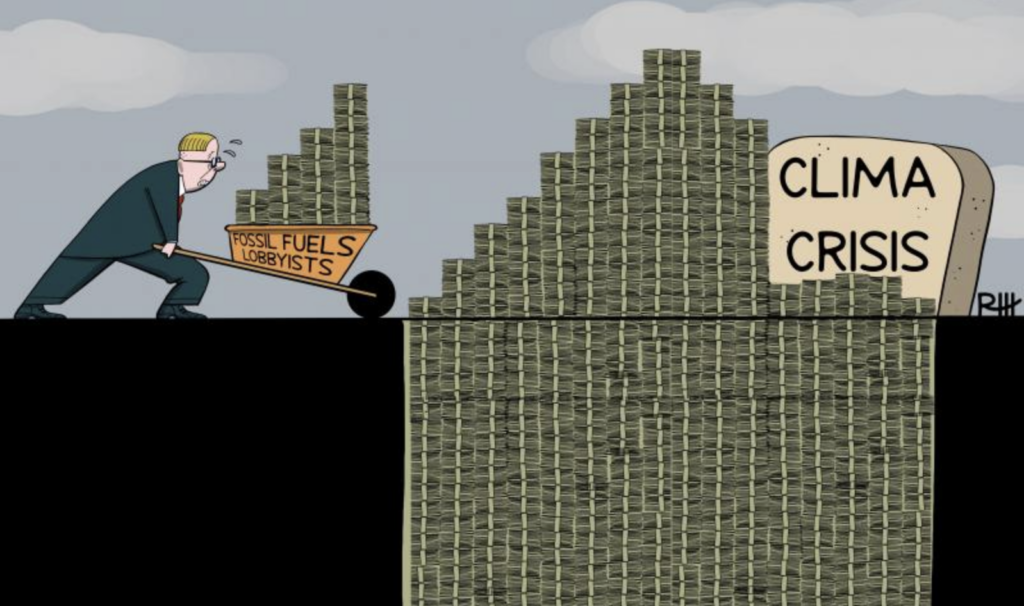Republican Presidential candidate Michele Bachmann believes that the government needs to stay out of the business of protecting the foods we eat. At a campaign stop this week, she told her supporters that food suppliers are “overburdened” by Food and Drug Administration (FDA) regulations. She informed the crowd that, yes, we need safety, but more importantly, we also need what she calls “common sense.”
Bachmann is joining in the chorus of conservative voices railing against “burdensome” regulations, but she is among the first to make the claim in regards to the food industry. Last December, Bachmann was one of the few members of Congress to vote against legislation that would have protected consumers by increasing the oversight of the food processing industry, a move that she claims would cause producers to spend more on safety and less on creating new jobs.
Bachmann was joined in her crusade against food safety standards last year by the conservative Heritage Foundation. Heritage went on the offensive last year when Congress debated legislation to increase food industry safety standards. Heritage claimed that regulation will never work, and that the free market has built in mechanisms that weed out any bad eggs who produce substandard goods:
Market forces such as competition, brand-name value, monitoring by financial markets and insurers, and common law are also powerful drivers of food safety. There are bad actors in every pursuit, of course, but considering the sheer size of the market, Americans enjoy a remarkably safe food system.
They also managed to give a little credit to scientists for helping keep our food safe:
History has repeatedly shown that science and technology have delivered the greatest advances in food safety. Pasteurization, water disinfection, and retort canning, for example, freed consumers from food transmission of botulism, typhoid fever, tuberculosis, and cholera. And it was the food industry, not regulators, that first standardized quality grading and pathogen elimination processes. More recently, irradiation and bioengineering have also helped to destroy pathogens and extend product shelf-life. Were it not for alarmist opposition to both, consumer acceptance would likely be greater—bringing with it broader health benefits.
The problem with Heritage’s arguments, as with most of their arguments, is that they are simply not true. The “free market” is in no way weeding out any companies or organizations that push faulty or dangerous products onto American consumers, especially in the food industry. Studies have shown that consumers are very poor judges of companies that have poisoned them, unless the government regulators are there to tell them what the company has done:
For those products where quality is not easily ascertained by consumers even after consuming the product, market mechanisms are unlikely to be adequate since it is impossible for consumers to punish cheaters if they cannot determine whether or not they have in fact been cheated. For such “credence goods,” market mechanisms may therefore be insufficient to ensure that the right level of quality is delivered.
The U.S. government has monitored food safety for more than 100 years. But in the minds of people like Michele Bachmann, the time for safety standards has passed. However, all of the available evidence shows that not only do we still need safety regulations in place, we are in fact suffering from a severe lack of oversight. The Daily Beast recently published a list of truths about our regulating agencies (a list that was originally featured in Newsweek.) According to The Daily Beast, the list is rather startling:
The two agencies on the front lines of food safety, the Agriculture Department and the Food and Drug Administration, have different risk assessments, legal standards, and resources committed to the effort.
USDA inspectors admit they are stretched so thin that they frequently miss required inspections at some plants, particularly in the populous Northeast.
FDA inspectors physically check only about 1 percent of the food shipped into the United States from foreign countries and get to only about a quarter of domestic plants a year.
But, as the no-regulation folks have said, even these meager inspections and standards are still too much.
Bachmann’s claims that we have too many burdens on the food industry come amid a massive recall of spices, and the FDA website is littered with recall notices with new food recalls issued every single week. In addition to the food recalls, independent tests have revealed large amounts of BPA, a known carcinogen, in children’s soups and soda recently. Those studies were conducted by independent agencies that are hoping to pick up the slack of an over-stretched FDA.
There is plenty of evidence at our disposal to show that food industry safety standards help protect consumers. A no-regulation, no-safety inspection America would not be a safe place to eat food without a healthy dose of antibiotics on hand.
Image from Christopher Halloran / Shutterstock
Subscribe to our newsletter
Stay up to date with DeSmog news and alerts







